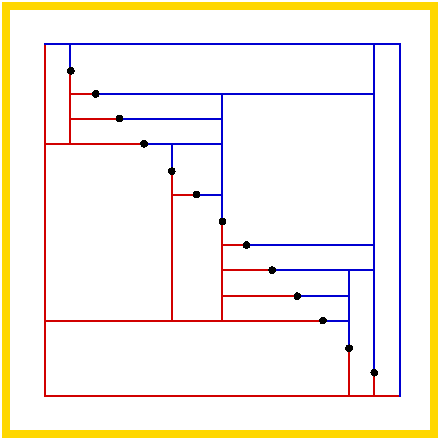Combinatorics
BMS basic Course -- Diskrete Strukturen I
Summer Term 2009
Sommersemester 2009
Prof. Stefan Felsner
Sprechstunde n.V.
LV-Nr.: 0230 L 149
Mo 8-10, MA 550
Mo 12-14, MA 551

Combinatorics BMS basic Course -- Diskrete Strukturen I Summer Term 2009 Sommersemester 2009 Prof. Stefan Felsner Sprechstunde n.V. LV-Nr.: 0230 L 149 Mo 8-10, MA 550 Mo 12-14, MA 551 |

|